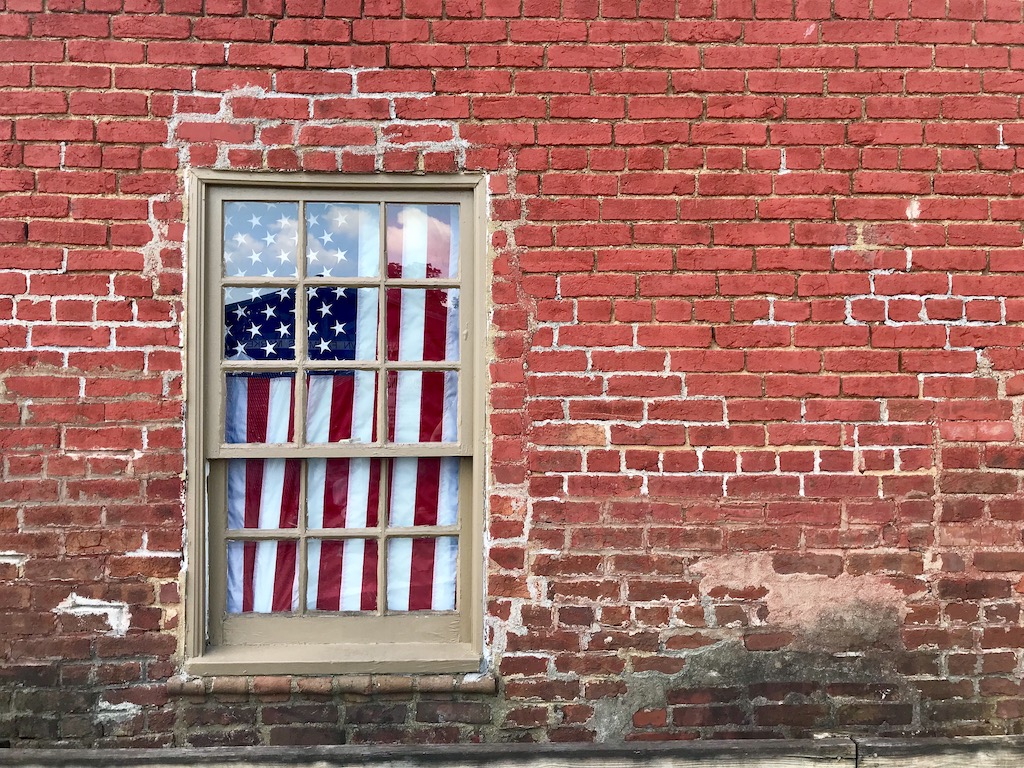On June 26-29, over 200 students and professors from 55 Christian colleges gathered in Washington, DC for the fifth annual Values & Capitalism Summer Conference. The three-day event served as a platform for students to engage in discussion of pressing social, economic, and political issues. Throughout the weekend, those attending heard from some of the brightest evangelical thinkers and writers, and carried their conversations into newfound relationships with peers from across the country. These were a dense 72 hours at the historic Mayflower Hotel, full of networking, scholarship, debate, and great food.
 Kirsten Powers, political analyst and columnist at USA Today, began the weekend with a bold criticism of progressive infringements on free speech and neglect of classical liberal values (students received a copy of her 2015 book “The Silencing: How the Left is Killing Free Speech”). Powers’ message laid the foundation for a conference full of open, rigorous dialogue.
Kirsten Powers, political analyst and columnist at USA Today, began the weekend with a bold criticism of progressive infringements on free speech and neglect of classical liberal values (students received a copy of her 2015 book “The Silencing: How the Left is Killing Free Speech”). Powers’ message laid the foundation for a conference full of open, rigorous dialogue.
Saturday morning brought a wave of lectures and conversation. Over breakfast, students heard from AEI scholar Kevin Corinth about his research on homelessness, followed by discussion with Tim Carney, AEI visiting fellow, on big business, big government, crony capitalism, and the value of free enterprise. Carney shared his distinct insight into the world of K Street lobbyists and their influence on businesses, as well as a review of how policies including the Dodd Frank Act and the authorization of the Export-Import Bank have been abused to the benefit of corporate profits. To end the morning, AEI senior fellow Karlyn Bowman delivered a lecture on public opinion and the implications of changing demographics in America.
 During lunch, Pete Peterson of Pepperdine University and the Davenport Institute shared about his recent candidacy for Secretary of State in California. Other highlights from the afternoon included a panel on religious freedom featuring Stephanie Summers (The Center for Public Justice), Sarah Pulliam Bailey (The Washington Post), and Phillip Bethancourt (The Ethics and Religious Liberty Commission), as well as an interview with former U.S. Representative Frank Wolf (R-VA) and Ambassador Tony Hall of the Alliance to End Hunger. The two former members of Congress spoke of their friendship across the aisle, their integration of faith and politics, and their work to champion human rights around the world. Congressman Wolf told stories of his travels to Romania and China, and his fights in the U.S. House of Representatives to deny most-favored-nation status from both countries in response to their human rights violations. Ambassador Hall recalled his decision to enter a fast following the abolishment of the House Select Committee on Hunger in 1993. Twenty-two days of dependence upon the Lord and his word (Isaiah 58 especially) brought surprising and joyful results, he described. Both Wolf and Hall lamented the suffering that many religious people around the world face today, including what Mr. Wolf described as a “genocide” of Christians and Yezidis in northern Iraq. He urged students to take initiative on behalf of those persecuted by speaking out to their representatives.
During lunch, Pete Peterson of Pepperdine University and the Davenport Institute shared about his recent candidacy for Secretary of State in California. Other highlights from the afternoon included a panel on religious freedom featuring Stephanie Summers (The Center for Public Justice), Sarah Pulliam Bailey (The Washington Post), and Phillip Bethancourt (The Ethics and Religious Liberty Commission), as well as an interview with former U.S. Representative Frank Wolf (R-VA) and Ambassador Tony Hall of the Alliance to End Hunger. The two former members of Congress spoke of their friendship across the aisle, their integration of faith and politics, and their work to champion human rights around the world. Congressman Wolf told stories of his travels to Romania and China, and his fights in the U.S. House of Representatives to deny most-favored-nation status from both countries in response to their human rights violations. Ambassador Hall recalled his decision to enter a fast following the abolishment of the House Select Committee on Hunger in 1993. Twenty-two days of dependence upon the Lord and his word (Isaiah 58 especially) brought surprising and joyful results, he described. Both Wolf and Hall lamented the suffering that many religious people around the world face today, including what Mr. Wolf described as a “genocide” of Christians and Yezidis in northern Iraq. He urged students to take initiative on behalf of those persecuted by speaking out to their representatives.
Throughout the afternoon, students and faculty had the opportunity to network and discuss lectures with peers from across the country. Around tables, groups held conversations about Michael Novak’s essay “Caritapolis: A New Global Vision for Christian Social Thought,” and deliberated over the moral foundations of capitalism and those societal factors that contribute most to human flourishing.
 A table of students and professors discuss Michael Novak’s essay “Caritapolis.”
A table of students and professors discuss Michael Novak’s essay “Caritapolis.”
Charles Murray, AEI resident scholar, gave a keynote address over dinner that evening, discussing and fielding student questions on his books “By the People: Rebuilding Liberty Without Permission” and “A Curmudgeon’s Guide to Getting Ahead.” Dr. Murray offered practical wisdom on workplace etiquette, writing, speaking, reading, and caring about public life.
Attendees gathered again at the Mayflower on Sunday morning to worship, read scripture, and hear from Dr. Charlie Self of Assemblies of God Theological Seminary.
In closing, Brian Brenberg and Bethany Jenkins (both of The King’s College) led dialogue on the intersection of faith and work. Dr. Brenberg discussed the cultural mandate found in Genesis 1, explaining how the Creator’s lack of directives on how to steward the earth implies that man is called to discover and therefore, to fail. This concept introduces a broader vision of what human capital is, and the value of taking on risk to develop it.
 Students listen to a lecture during the second day of the conference.
Students listen to a lecture during the second day of the conference.
Bethany Jenkins helped unpack this in practical ways with four standout pieces of advice. First, learn what needs and opportunities exist in a field by reading and talking with professionals. Second, focus on building capital rather than earning success. Every job will be rewarding when one cares about developing competency, autonomy, and relationships in any given position. Third, recognize that the Church is a primary networking resource. Finally, begin taking responsibility for your actions. A disciplined prayer life cultivates good instincts, and enables you to discern God’s calling in the toughest of situations.
Many traveled home Sunday evening, and others took the time to rest before the next morning’s visit to Capitol Hill. There, students heard from a panel of Hill staffers, and had the chance to tour the Capitol.
 Over 200 students and professors attended the conference from 55 schools.
Over 200 students and professors attended the conference from 55 schools.
Here’s some feedback we received from students and professors following the conference:
“I appreciated the ideological, theological, political diversity of speakers and the opportunity to meet other young people passionate about these topics.”
“The lectures are always fantastic, but my best experience of the conference this year was engaging in dialogue with other students and professors. This networking time is essential for students to form friendships that will support them in their endeavors when they return to school.”
“The conference has spurred me on to pursue and research more about the topics covered so that I can one day have an impact on this nation.”
“It was so refreshing to be surrounded with academic conversations rooted in Christian conviction.”
“A unique opportunity to interact with congressmen, journalists, and business leaders in Washington.”



